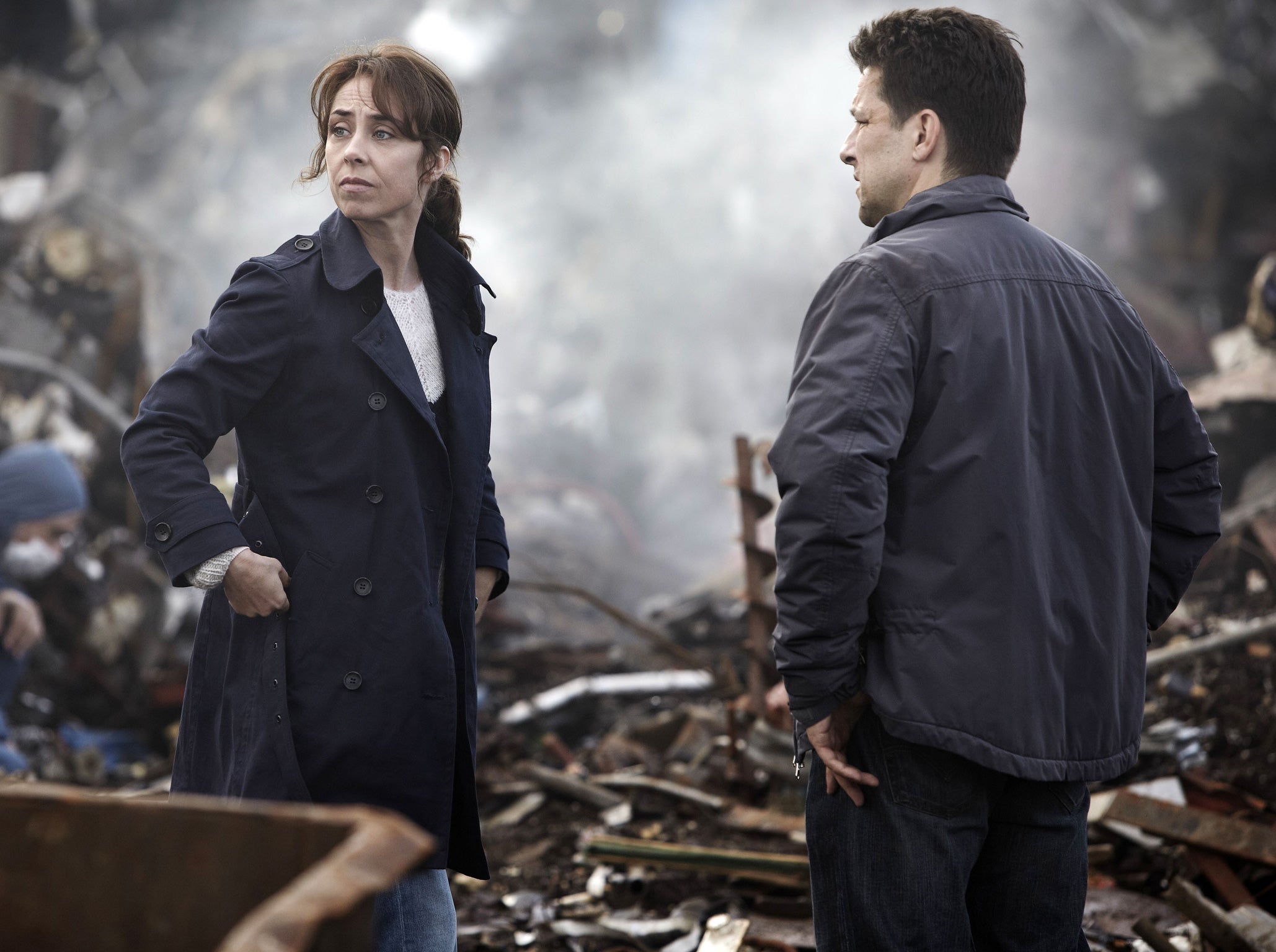IoS television review: The Killing 3, Saturday, BBC4 The Hour, Wednesday, BBC2
The Danish detective starts the third series looking jaded, but soon she finds her jumper – and her appetite for the hunt

The first two minutes of The Killing 3 offered a reminder of its virtues: a container ship at night, doomy music, spilt documents, a distant clangour, a camera peering around corners looking for something it would rather not find – and a long close-up of a near-naked, hunched and sweating man, doing something appallingly physical that we couldn't quite see …
I wasn't fully signed up for the original, 20-part series – I found it repetitive and overly weepy – but I admired its power to involve and traumatise. For all its washed-out colour and bleak Danish landscapes, it's very emotional. Though supposedly dedicated to brutal realism (sample dialogue: "Where's the body?" "Pretty much all over the place … it's impossible to put together his face") and Machiavellian politics, these are underscored by romantic entanglements and urgent family issues.
During a tense board meeting, the all-powerful boss of a mega-rich shipping firm worries about his young daughter's encounters with a cat. Heading a coalition government that's hoping to be re-elected, the Danish prime minister takes the unusual step of falling in love with the support-party leader, a distinctly un-Clegg-ish brunette called Rosa.
And then there's Sarah Lund, played by the wonderful Sofie Grabol. She may be a genius at detection, but her heart isn't in it any more. After 25 years of fighting crime, she wants to investigate a quiet life. Our first sighting of her is decidedly unglamorous as she emerges from a lavatory, doing up her jeans and talking on her mobile. Beside Juncker, the eager, fresh-faced, junior inspector who's joined her team, she looks washed out. Her spaniel eyes were never sadder, her disappointed mouth never so downturned, as when she pleads with her boss to be assigned to the snoozetown of the operative, planning and analysis department. But then, one evening, in the middle of a maudlin heart-to-heart with her estranged son, she glances at a photo of the corpse and spots a vital clue. Back on goes her cable-knit jumper with the downward chevron, and back – suddenly revivified – goes Lund the Super-sleuth into battle with Evil.
My only gripe about The Killing is with the script, which tries too hard to ding expository plot-points into viewers' heads. Key words and phrases recur like a mantra: "Security are worried … I'd better ring Special Branch … The PM's visit to the homeless … the prime minister's heading for the docks … Security … PM … the docks …" (Have you got that yet? I think they're trying to tell us an assassination attempt is on the cards.) Otherwise, this third helping of The Killing packs an emotional wallop and grips like Zara Phillips's knees.
Another welcome return is The Hour, Abi Morgan's classy evocation of a BBC current-affairs show in the late 1950s. (The parallels with Newsnight are legion.) Investigations of government double-dealing are mirrored by the sexual tension that crackles between the producer, Bel Reilly (Romola Garai), and her alpha-male colleagues.
That tension has been sharpened by the arrival of a new head of news, Randall Brown, played by Peter Capaldi. Resisting the urge to eff and blind at his colleagues, Malcolm Tucker-style, he does a good line in creepy, looming and grim-faced intimidation. In short order he upsets Bel by praising The Hour's rival show on ITV, brings the talented but bumptious idealist Freddie Lyon (Ben Whishaw) back from America to co-host, reveals that he was once romantically involved with Lix Storm (Anna Chancellor) and tells the vain, womanising Hector (Dominic West) that he's an alcoholic.
I don't remember the first series being this good. Morgan's dialogue is full of hissing rivalry and thwarted desire. A storyline about Soho sleaze and violence fills the screen with underwear, grim policemen and sweaty club owners. The camerawork offers loving close-ups of eyes, mouths and bruises, capturing the texture of 1957 in fine detail: Randall's hideous spectacles, Bel's bashed-up typewriter (the only sign of this suspiciously well-turned-out woman's inner turmoil) and Freddie's luxuriantly Vitapointed hair. It all works extravagantly, swoon-makingly well. Right now, it's the best-written, best-shot and best-acted show on television.
Subscribe to Independent Premium to bookmark this article
Want to bookmark your favourite articles and stories to read or reference later? Start your Independent Premium subscription today.

Join our commenting forum
Join thought-provoking conversations, follow other Independent readers and see their replies